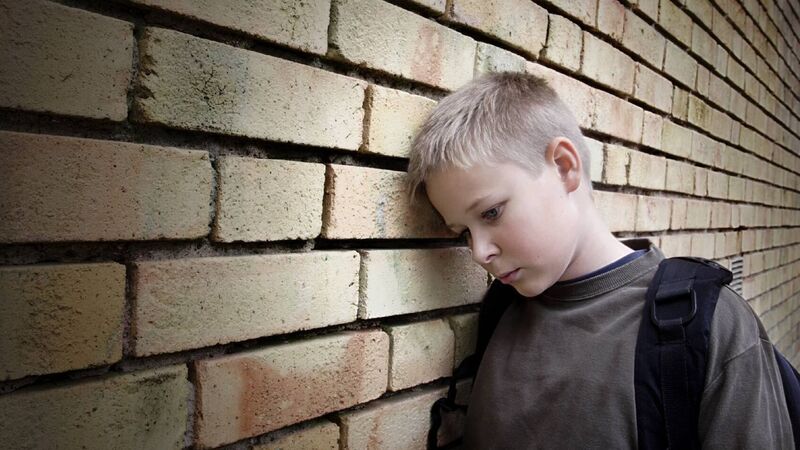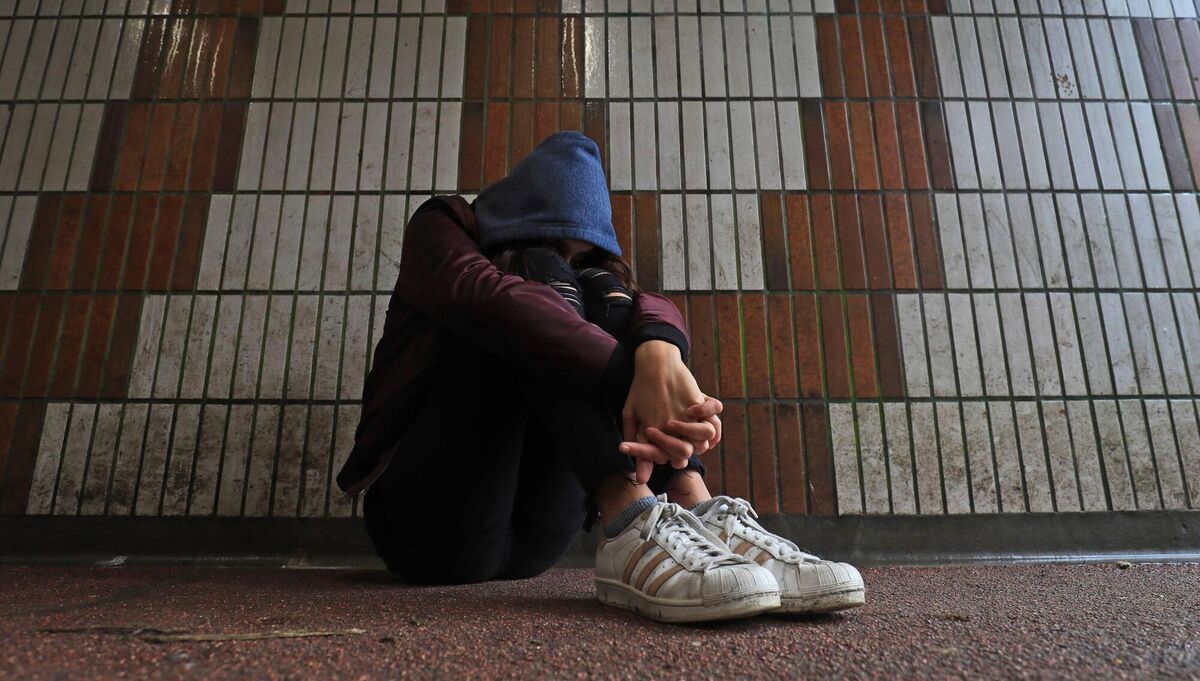Dr Niamh Lynch: Covid-19 stress taking a toll on our children

The children entered schools that had changed beyond recognition. Schools bedecked with signs about Covid-19 and social distancing. Schools where the yard was no longer a place to run, and chase, and whisper in your friend’s ear, but a strictly supervised arena with two meters between you and your pals at all times.
All of Ireland seems to be enraptured by the Supervalu Christmas ad. A little boy hangs a Santa bauble on the Christmas tree as the radio in the background plays a refrain with which we are all familiar.
"Covid-19 continues to cause restrictions across Ireland".
The boy then goes on to repeatedly and anxiously question his parents as to whether "he" is definitely coming, only to be constantly reassured that "of course he is".
And of course, "he" does, giving the little boy, and indeed the watching nation, the happy ending we are all so desperate for this year.
However,it is not the happy ending that catches my attention. It is the child’s anxiety. Perhaps unintentionally, the makers of this ad have perfectly encapsulated the unending nervousness about Covid-19 that is affecting some children quite deeply and brings a steady stream of them to my office with escalating physical symptoms.
I remember the fear that entered our house at the beginning of the first lockdown. The radio played constantly in the background. Conversations were shushed at the top of the hour when the news headlines were read out. Holidays and family visits were tearfully cancelled.
Communions and Confirmations were put on hold.
Children were restrained for fear of dispensing a stray hug to a friend. Grandparents waved sadly out windows and computer screens. Fear settled over our lives, and we lived in the shadow of her underbelly.
Then came the summer. And camps! And GAA! And even a bit of good weather! There was no more home schooling and hardly any Covid-19. Grandparents emerged from their cocoons. Fear retreated just enough to let the sun shine through.
However, Fear had gone somewhere else. She settled over schools, all working furiously to Covid-proof themselves. Teachers worked around the clock to bring their chronically under-resourced schools up to nigh-impossible standards of hygiene. However, under the shadow of Fear, they did it.
And in early September, masked parents handed their children over to their fantastically dedicated teachers, and heaved a massive sigh of relief.
The children entered schools that had changed beyond recognition. Schools bedecked with signs about Covid-19 and social distancing. Schools where the yard was no longer a place to run, and chase, and whisper in your friend’s ear, but a strictly supervised arena with two meters between you and your pals at all times.
Schools where the 10-minute queue to wash your hands before eating meant you had no time to eat. Schools without Covid-19, but without much fun either. Then cases started to rise, another lockdown arrived. Fear settled in for the long run. And that is when children started to get sick.

It began in September with a trickle of children aged between seven and 12-years-old arriving at the hospital with sore tummies, headaches, feeling sick. Later that month, young teenagers arrived with an array of unusual symptoms — abnormal movements, dizziness, panic attacks. Running medical investigations on these children revealed one common finding – nothing.
So what is this strange affliction? It is anxiety. By calling these symptoms anxiety, I am in no way implying that they are in the child’s head. The symptoms of anxiety are very real, and can be painful and debilitating.
Whilst us grown-ups got back to a somewhat normal life in September, our children went into an environment where Covid-19 was considered an ever-present risk. And from the point of view of minimizing Covid-19 transmission within schools, this approach has been a resounding success. But some children are paying a high price.
Their anxiety is manifesting itself as physical symptoms, as stress hormones course through their veins. Younger children tend to worry for their parents and grandparents — they are afraid of the virus itself and what it might do to a loved one.
Teenagers have bigger, more unfathomable worries. They see ahead, to opportunities missed, to financial worries for their parents, to a future that has become somehow dulled.
It is time to change the discourse around Covid-19 for our children. They need to be recognised as the most diligent and compliant of all our citizens when it comes to beating this virus. They need to hear that the simple things really do work — limiting contacts, social distancing, hand hygiene and mask wearing. They need to understand that we know so much more about this virus now, and that even if someone gets sick with it, doctors and nurses have gotten much better at treating it. However, most of all, we need to address Fear head on.
If your child is displaying signs of anxiety, do not ask a broad question such as ‘What is wrong?’ or ‘What are you worried about?’ Get specific. Do not be afraid to ask "Are you worried about Covid?" Because, without it being spoken, that is what the kid in the Supervalu Christmas ad is worried about.
He hears what is being said on the radio. He reads what is written in the papers. He is every child. And it is time for the grown ups in Ireland to take every child by the hand and give Fear a good old poke in the underbelly. It is time for her to move off. She will not be welcome here in 2021.





